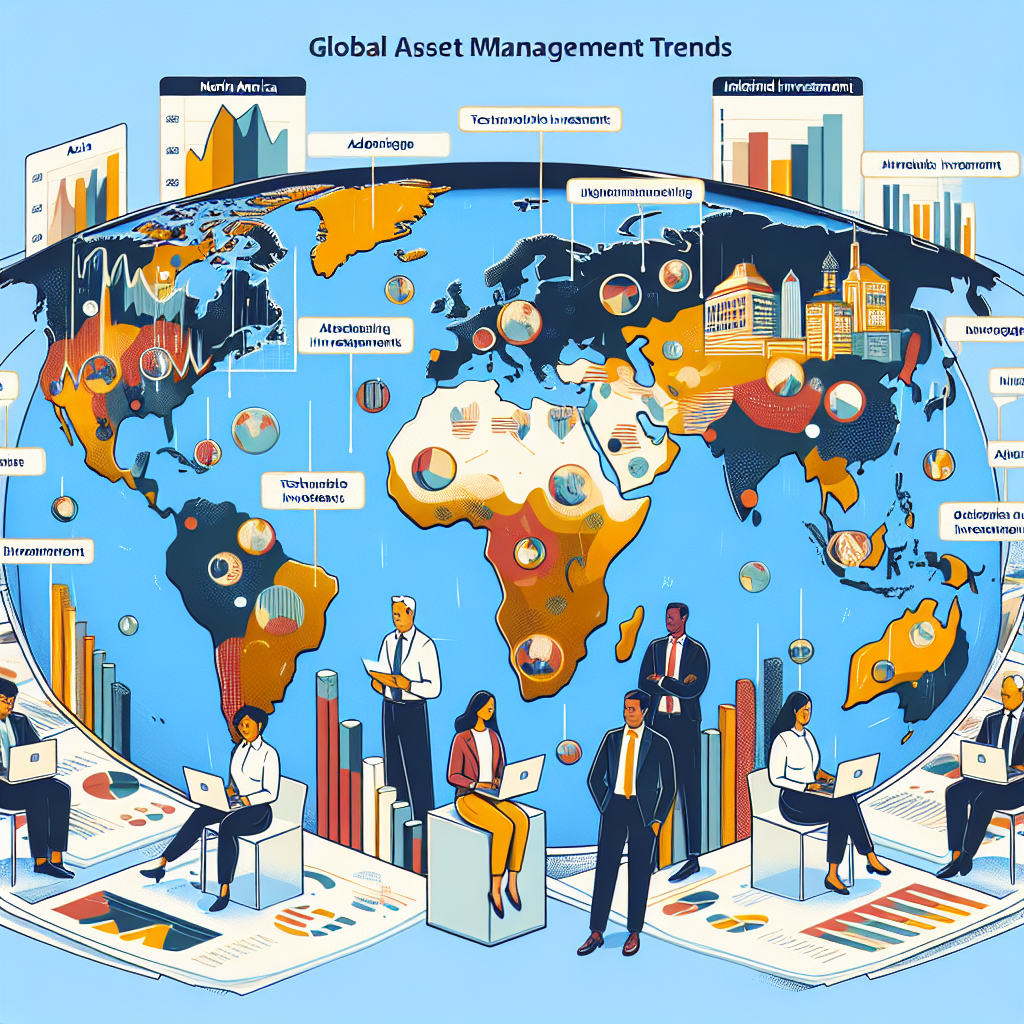
Exploring Global Asset Management Trends and Their Implications
Introduction
Asset management is an integral part of the financial sector that has been evolving in response to changes in the global economic landscape. The industry is influenced by various factors including technological advancements, regulatory changes, and shifts in investor behavior. This article explores the current global asset management trends and their implications for the future.
The Rise of Sustainable Investing
Increased Focus on ESG Factors
Environmental, Social, and Governance (ESG) factors are increasingly being integrated into investment decision-making processes. Investors are becoming more conscious about the social and environmental impact of their investments. This trend is driven by a growing recognition that companies with strong ESG performance are often more resilient and profitable in the long run.
Regulatory Push for Sustainability
Regulatory bodies worldwide are pushing for more sustainable investing practices. The European Union, for instance, has introduced regulations that require asset managers to disclose their approach to ESG factors. Similarly, the U.S. Securities and Exchange Commission (SEC) is considering rules that would mandate ESG disclosures.
Technological Innovations
Adoption of Artificial Intelligence and Machine Learning
Artificial Intelligence (AI) and Machine Learning (ML) are transforming the asset management industry. These technologies are being used for tasks such as portfolio management, risk assessment, and client service. They enable asset managers to process vast amounts of data, make more accurate predictions, and automate routine tasks.
Blockchain and Cryptocurrencies
Blockchain technology and cryptocurrencies are another major trend in asset management. They offer potential benefits such as increased transparency, reduced costs, and enhanced security. However, they also present challenges in terms of regulatory uncertainty and technological complexity.
Shifts in Investor Behavior
Growing Demand for Customization
Investors are increasingly demanding customized investment solutions that align with their individual goals and risk tolerance. This trend is driven by advancements in technology that enable more personalized service and the rise of a more financially literate investor base.
Increased Use of Digital Platforms
The use of digital platforms for investment management is on the rise. These platforms offer convenience, transparency, and often lower costs. They are particularly popular among younger investors who are comfortable with technology and expect a high level of digital service.
Conclusion
The global asset management industry is undergoing significant changes due to factors such as the rise of sustainable investing, technological innovations, and shifts in investor behavior. These trends are reshaping the industry and creating new opportunities and challenges for asset managers. To succeed in this evolving landscape, asset managers will need to adapt their strategies, invest in technology, and focus on meeting the changing needs of investors.


